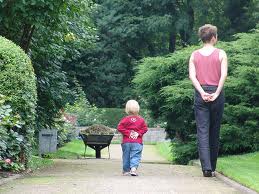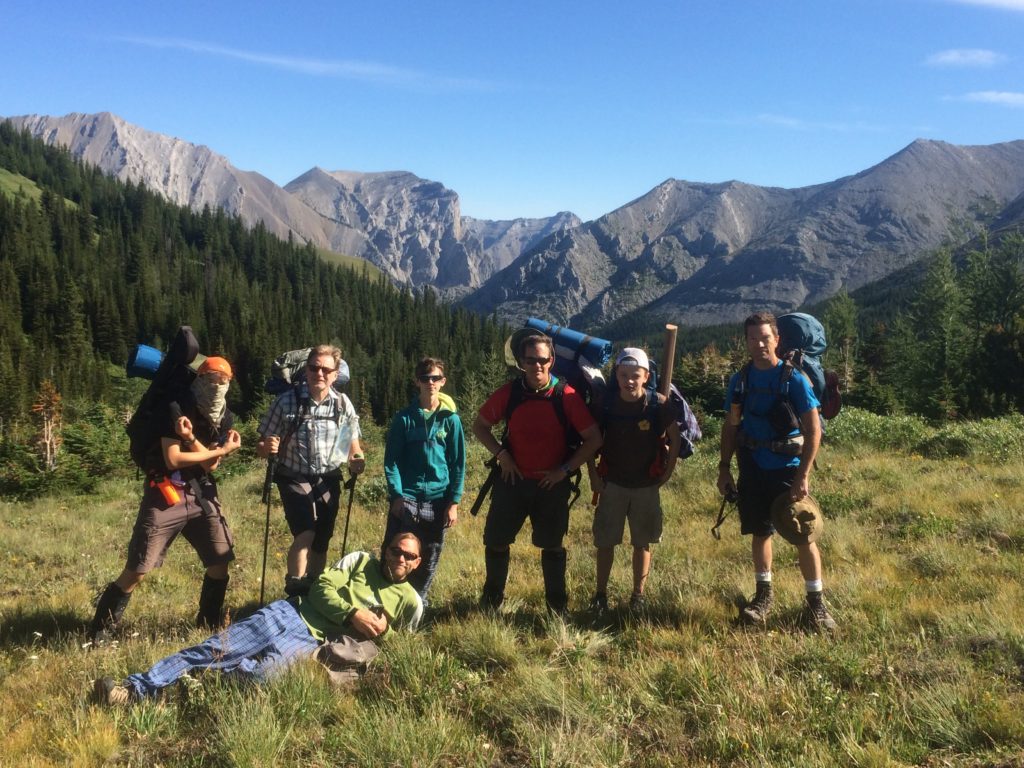The Visible Tapestry of Church: Practicing Sacraments with Life!

Can you see God’s tapestry and beautiful mosaic of relationships being connected all around you?
Within the hidden tapestry of the Kingdom and the invisible Church, God’s idea is for there to be visible, local, and unique shapes of church where at least 2 to 3 followers of Jesus gather together, and live life together. These organized and visible expressions of church will be made up of diverse ethnic groups, age groups, socioeconomic groups, styles, and models. Each of these unique shapes of church when seen as a connected whole form a colorful and beautiful mosaic. Each church is one of the threads that when woven together create a tapestry that reflects a picture of what Jesus and His Kingdom look like.

Our practices are the borders that define who we are!
The unchangeable DNA or nucleus is Jesus and His Kingdom way of living. Then there are distinctive practices that form the semi-permeable borders or boundaries of the visible church, defining who we are and what we are about. Irrespective of culture, context, model of church, or period in history, these practices have given the visible church a clear collective identity.
How we express these practices, or the packaging through which these practices are expressed will be varied and diverse as we try to be culturally relevant.
These essential practices are what I will refer to as sacraments. To a Jesus follower, all of life is to be an act of worship or a sacrament. There is to be no separation or compartmentalization between our lives of worship in the normal routines of work, play, eating, marrying, raising of kids, and the practices or sacraments we walk out in our church gatherings. What we do in a church gathering is to bleed into or spill over into our everyday normal life, and gives reality to our worship rituals when we meet together.
“So here’s what I want you to do, God helping you: Take your everyday, ordinary life—your sleeping, eating, going-to-work, and walking-around-life—and place it before God as an offering.” Romans 12:1
What are sacraments? Simply put sacraments are holy practices where heaven and earth kiss. Invisible God in some mysterious way meets with us and reveals Himself to us in the participating together of these visible practices. What makes a practice or sacrament holy?

In God every act of life is holy!
Sacraments are visible rituals, rites, and practices we participate in as a community that remind us of our identity in Jesus, and demonstrate a Kingdom culture, ethic, and way of living life. These practices become holy when God infuses His life into our normal, sometimes mundane, human activities in some mysterious way. If we come to these sacraments with an open heart, we invite the Spirit of God to change us from the inside out.”
For us to get a full picture of God’s idea of the Church, the open, invisible tapestry of church needs to be become visible. This happens when a group of Jesus followers commit to come together and form a local community around their raison d’etre found in Jesus. As a community, they call and encourage each other to walk out the Kingdom Rule of Life summed up in Matthew 5-7. When they gather as a community, they participate in a rhythm of practices infused with the life of God. Their identity in Jesus and these practices differentiate them from any other club or community.
Another way to put it is that the visible church is not just an open system with no borders where we simply conform to our culture and context with no clear identity. Where there are no values and practices to define who we are, we are no longer able to be salt and light. We become a tasteless blob. In some of the current ways of walking out church, some have watered things down to the lowest common denominator because of a desire not to offend anyone, or to try and fit in with the culture.
There are some essential practices that need to be part of the rhythm and routines of any gathered church in any country or culture, irrespective of model of church, and which transcend the changes going on around us. Though the packaging or form can be adapted to any culture or context, the core practices remain the same. What are those ageless, best practices of the church gathered?
1. The Sacrament of the Table: Centering, Celebrating, and Communion!

What is the Eucharist sacrament?
One of those sacraments is what we in the church have called the Lord’s supper, communion or the Eucharist. For most of us who have grown up in the church this ceremony involves a priest, pastor, or elder of the church dispensing some wine or juice and a tiny piece of bread or wafer to be partaken of in a rather somber and serious way.
For those looking in or who have a distant religious memory, there are some questions that pop up. During this ceremony of eating a wafer and some wine do the elements actually turn into the blood and body of Jesus? Sounds kinda gruesome to be eating someone’s body and blood! Do you have to be a card carrying member of that church to be able to participate?
I remember as a kid thinking that if this ceremony is meant to celebrate Jesus why are we so skimpy with the portions, and why do people act like they have just been to a funeral. Why don’t we grab a hunk of bread and with a full goblet of juice or wine toast King Jesus with a hearty clinking of our cups and a cheer? Why don’t we practice this ritual around a sumptuous meal with friends?
This ageless practice is first and foremost to center us as a community around Jesus. He is the reason we exist as a community. It is the simplest, and the central act of worship. We celebrate that in some mysterious, yet tangible way, Jesus is present with us in eating of the bread and wine. We are acknowledging His presence, expressing our love for Him, and inviting Him to infuse us with His life to go out into the world.
It is also to a time to celebrate and say thank you, Jesus for reconciling us to God. We are celebrating the coming of His Kingdom through His life, death and resurrection bringing freedom to us from sin, death, and Satan.
We welcome all to come to the table and receive the ‘life to the full’ that Jesus promises us. In Luke 14: 1-23 Jesus tells us to go out and invite the poor, the crippled, the blind, the foreigner, and the lonely to come to the table. We are really practicing or having a dress rehearsal for the big Feast that is coming when there will be people from every tribe and tongue sitting at the table together.

Celebrating Jesus and life together with a circle of friends around a fine meal!
Since food is the language of relationship, it is hard to eat with our enemies or those who have hurt us. In coming around the table, we have a chance to reconcile through the giving and receiving of forgiveness.
In our more formal ways of practicing the Eucharist, the ritual is done at the front with each individual receiving a wafer or piece of bread and some wine or juice from a elder, priest, or pastor. We eat and drink the bread and wine returning to our pew or seat. Though this approach is most practical when you have a larger group gathered, I would like to suggest that we miss out on some of the communal and celebratory parts of this communion. It becomes somewhat of an individualistic ritual.
The practice of this sacrament with a smaller group of friends and guests we invite to the table, like new immigrants, around a shared meal allows for a deeper exchange of intimacy. Instead of one person dispensing the bread and wine, we share the bread and wine with each other.
Weave this sacrament into your planned gatherings big or small on a regular basis, but also into your suppers with your family, or when you are practicing hospitality with some friends who may not be church goers. Share a meal together with food from the different countries represented, and then cap off the meal with a time of toasting King Jesus with a chunk of bread or handful of rice, and some juice or wine. Though the packaging or form can be adapted to any culture or context, the core practice remains the same. Include prayer for special needs such as healing as part of the sacrament.
2. The Sacrament of Baptism: Initiation Rites Into the Community

Outward sign of an inner decision to walk out faithfulness!
Baptism is a visible act of saying, “Yes, I’m in.” The act of baptism in and of itself doesn’t save anyone. It is like a gang member getting a tattoo. The physical symbol brands that person, and shows the rest of the world that this person is serious about their allegiance to this particular gang. As well, the gang welcomes that person in with all their backing and protection.
Piercing is not just a modern day phenomenon to communicate the inward choices or convictions of the heart. In the O.T., when a servant was given their freedom by their master, the servant could voluntarily out of love choose to get their ear pierced. This outward sign was to show that they had become a bond servant for life out of love. (Ex. 21:5-6) What a great picture!
In a similar way, a person in our community who is wanting to outwardly demonstrate their love and commitment to Jesus and the community would be baptized. Whether you sprinkle, or fully dunk to me makes no difference. The rite should be public with some vocal declaration of the person’s choice to pledge their allegiance to King Jesus, His Kingdom, and His community.
Be creative with this. I remember baptizing a friend, and now member of our family, in a tub in our kitchen! Another friend of mine baptized some folks under a shower when on a trip to a country where becoming a follower of Jesus can be a dangerous decision. It’s fun to do this at a park by the river or lake so outsiders can observe.
Baptism like marriage is a ceremony where in front of friends, family, and even strangers we are committing to walk out being faithful to Jesus and His community called church.
3. The Sacrament of Reading and Practicing the Scriptures: Learning, Living and Passing On the Jesus Way of Life

What is the Big Story?
The reading of the Scriptures, interpreting, and applying of the Scriptures together with the help of the Holy Spirit is a key sacrament. We need to be constantly reminded of the Big Story of God’s redemptive plan for this world, and how we can play a part in this Meta-narrative.
There are some who are gifted to teach and explain the Scriptures to us. Public or platform teaching does not exclude the need to be reading and applying the Scriptures in the context of a smaller group where there is room for dialogue, discussion, even disagreement, and formation through application.
Information and knowledge alone do not change people. We need an encounter with Jesus that motivates and empowers us to change. We need some friends to show us the way! We learn a way of life by watching others and then going for it. We pass on a way of life by inviting others to live life with us so we can learn from each other!
Learning includes motivation, information, and application. In most of our gathered settings, we have been fairly effective in motivating, and informing people on the Big Story and the Kingdom way of living.
Where we’ve been remiss is in not creating space in our meetings for folks to get with a couple of friends in a break out group to share how the Holy Spirit has been speaking to them about applying what they have heard in the teaching. The sharing would also include an opportunity to be accountable for acting on what they hear, and prayer for empowering.

Learning from each other
We all need some trusted friends to show us the way and to be accountable for follow through on what we say we will do. This kind of application and accountability best happens in a small group.
The key is to blend the motivation and informational types of teaching and preaching of the Scriptures in larger gatherings with the application and accountability happening in smaller clusters of friends.
Another practice should be the regular telling of stories from our everyday lives of how we have had the chance to be part of God’s unfolding Big Story at work, school, in our neighborhoods, and in our families. How have we encountered Jesus and His Kingdom last week or today? The ageless story becomes fresh when we live it daily and weekly.
4. The Sacrament of Sacred Space and Symbols:
 In a worldview that does not separate the secular and the sacred, we realize that everywhere we go is a holy place, and that God is not contained in a temple or church building. (Acts 7:48; 17:24) Often God is showing up in the dark places as well as in the normal venues of our home, neighborhood, work place, and such.
In a worldview that does not separate the secular and the sacred, we realize that everywhere we go is a holy place, and that God is not contained in a temple or church building. (Acts 7:48; 17:24) Often God is showing up in the dark places as well as in the normal venues of our home, neighborhood, work place, and such.
Having said that, I do believe that there is a tension here. I remember visiting Durham Cathedral and the island of Iona some years ago while on a spiritual pilgrimage of sorts. On the outside of the Durham Cathedral was a plaque that read, “For more than a thousand years prayer has been offered in this place…” When you enter the Cathedral you can sense the presence of God in a very tangible and powerful way. The place has been saturated with God.
Iona, a remote and beautiful island where a Celtic Christian community was founded, is known as a thin place in Celtic Christianity and by spiritual seekers of all sorts. A thin place is said to be a location where the separation between heaven and earth is as thin as a tissue. In these places, it seems easier to connect with God. In creation these places are often high places, or remote and rugged places of raw beauty. Often these become places of worship whether to God or the dark side.
I believe that as the church gathered we need sacred spaces where the separation between heaven and earth is tissue thin. We can do this by reclaiming buildings where a church used to meet, but has died. We can do this by soaking new venues or dark places such as a former strip club with prayer and worship.
People are looking for places of serenity and beauty as reprieves from the consumerism and chaos of city life. Many new churches build or choose utilitarian buildings for meeting spaces out of a value for maximizing the use of their building beyond Sunday morning.

Creating places of beauty as icons.
In the Protestant world, we have tended to be iconoclastic and diminished the value of beauty as an end unto itself. In our value for good stewardship, let us not neglect the value for creating spaces of beauty investing time and money. This may seem wasteful, but the God we worship loves to lavishly invest in beauty even when it doesn’t seem to serve any useful purpose.
If we are meeting in facilities that are plain and functional such as a community center, commission the artists to create a place of beauty through paintings, murals, sculptures, icons, and mosaics that help us connect to an invisible God.
5. The Sacrament of Shared Life Together: Diving in Close to Home with Some Friends
In our fragmented world, most of our lives are lived separated from one another. We are suffering from a pandemic of loneliness, busyness, and consumerism. There is a longing for belonging, integration, simplicity, deeper friendships, family, and the sharing rather than hoarding of resources.

Living life together!
Many of us have stories of experiments, mostly in our youth, where we pursued the ideals of ‘deeper’community. We wholeheartedly gave of ourselves to live life in close proximity with some friends. The pursuit of a shared life together may have included sharing some common meals together, pooling of finances to be distributed to those in need, and some sort of rule of life. Some of these turned out, but many of them ended up in disaster due to immaturity, and host of other factors.
Often in our zeal we leapfrogged to the ideal without the grace needed to live out the ideal. There was nothing wrong with the ideal. We simply didn’t have the character of Jesus yet to live it out. We may have become disillusioned and vowed to never risk like that again.
We’ve settled for church lite. We go to meetings, but avoid the risk of going deeper in our relationships.
There is no better way to surface our growth issues and selfishness than to live in close proximity with some other people who are different from us. It is a chance for real formation into the nature of Jesus to occur.
 In most of church expressions, our gatherings allow us to rub shoulders, but we can leave the meeting being polite with one another while hiding the rooms in our interior castle that have a ‘No Admittance’ sign. We can show the nice side of who we want people to see without the pressures of living close to one another surfacing our ‘dark side’.
In most of church expressions, our gatherings allow us to rub shoulders, but we can leave the meeting being polite with one another while hiding the rooms in our interior castle that have a ‘No Admittance’ sign. We can show the nice side of who we want people to see without the pressures of living close to one another surfacing our ‘dark side’.
Often what seem like small things such as differences in parenting styles, differences in personality or how we practice sharing fester and blow up a good thing.
In most monasteries or monastical orders, a newbie, called a novitiate, who wants to join the community spends at least a year in a trial period so that both sides can evaluate whether it will work or not. After a year, the novitiate takes their vows to commit to the order. When one signs up for the order the rule of life is clear and not up for negotiation. Either you buy in or not.
The question is how do we pursue ‘deeper community’ without killing each other or starting a monastical or missionary order with clear lines of ‘in and out’? Most real lifers cannot live to that degree of intensity or commitment.
I suggest we start by calling a few folks to move into the same neighborhood together. Buy separate homes on the same block or within walking or biking distance of one another, so that we can drop in on one another spontaneously.
Another option is to get to know our immediate neighbors, and listen for those who are longing for deeper community. You can start with a block party to simply deepen connection. Look for those who are longing for more, are open to spiritual conversation, and serving one another. Form a small group with these folks where you share a meal, celebrate communion, and pray for one another.

Talk through and negotiate an agreed upon rule of life with 2-5 folks. This rule of life might start with a common meal together once a month, and over time increasing it to once a week. Share resources with one another like baby sitting, car pooling, lawn mowers, a shared community garden in one person’s yard, and chip in to a pool of finances to be given away to whoever has a need.
Try serving together in a common mission in your neighborhood. If you can learn to resolve conflicts in a healthy way, and stay together for 1-5 years, anything is possible.
My hope is to see many small circles of friends ask the following questions:
 Why don’t we go on a God adventure by moving into the same neighborhood and living life together? What would it look like to love our hood to Jesus by serving the felt needs of our hood, and making it a better place to live? Where is God already at work in our hood restoring relationships, rebuilding the ruined places, bringing beauty out of devastation, bringing joy where there has been sorrow, and bringing freedom where there has been bondage? How can we be part of that?
Why don’t we go on a God adventure by moving into the same neighborhood and living life together? What would it look like to love our hood to Jesus by serving the felt needs of our hood, and making it a better place to live? Where is God already at work in our hood restoring relationships, rebuilding the ruined places, bringing beauty out of devastation, bringing joy where there has been sorrow, and bringing freedom where there has been bondage? How can we be part of that?
Now with God’s backing go for it!
Tim Schultz
































